Current Exhibitions
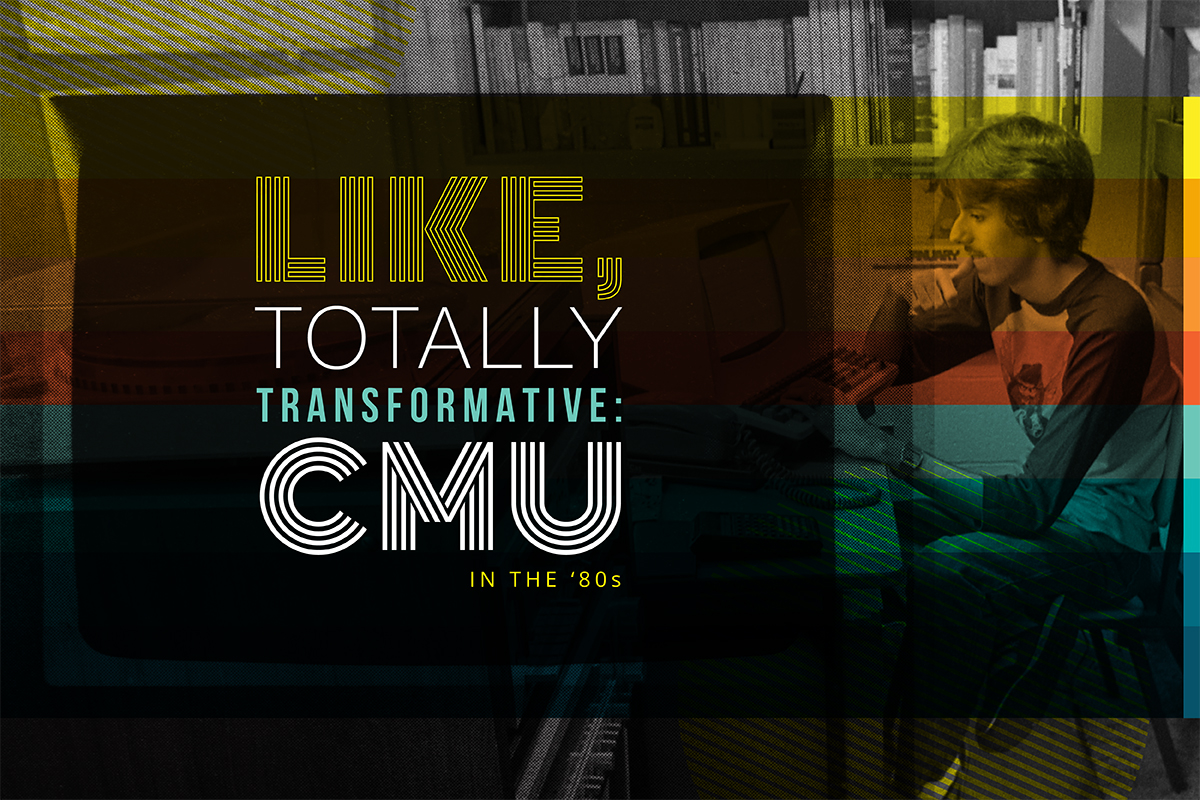
Like, Totally Transformative: CMU in the 1980s
August 30, 2024 - July 11, 2025
Hunt Library Gallery
Carnegie Mellon University entered the ‘80s as a well-respected regional university, but President Richard Cyert's vision at the start of the decade would help turn CMU into an international leader in innovation, technology, and the arts. This growth led the university to develop a comprehensive video marketing plan that attracted the attention of high school guidance counselors, parents, and students from around the country. Like, Totally Transformative: CMU in the ‘80s is a portal to the past, a snapshot of life on campus more than four decades ago as our world began to transform! Take a trip to the past as you watch nearly two hours of videos.
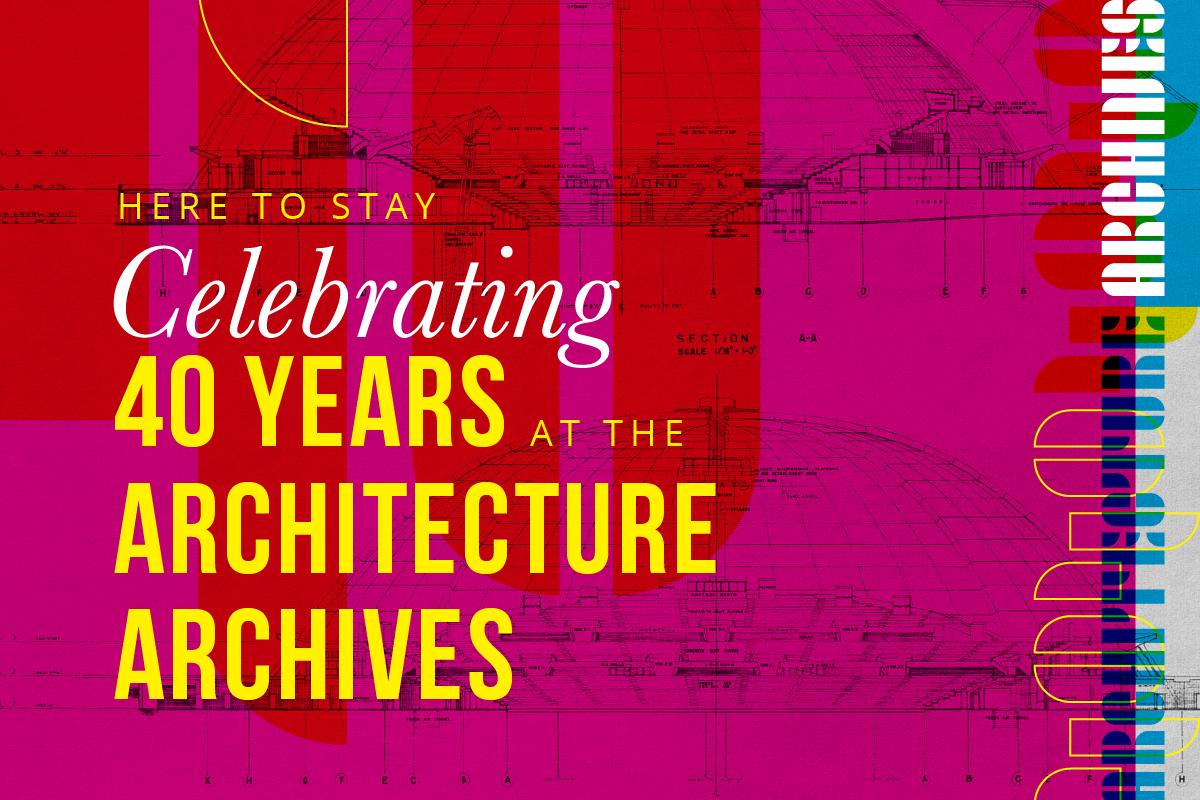
Here to Stay: 40 Years of Architecture Archives
Ongoing
Hunt Library, Fourth Floor
Settlement, industrialization, urbanization, and redevelopment have each left a profound mark on the region’s built environment. The architecture bears testimony to the forces that shaped it, but buildings can only tell part of the stories. The histories of their conception, design, and construction are contained in the drawings and other documents shared between clients, architects, and contractors. These architectural records document an irretrievable past (for buildings demolished or left unbuilt), facilitate the preservation and reuse of extant buildings, and inform our understanding of our surroundings.
For the past forty years, the Architecture Archives collections at Carnegie Mellon University have documented thousands of projects and the work of hundreds of designers. Records have been obtained from architects and their firms, families, property owners, and governments. This wide diversity of materials—preliminary sketches, renderings, specifications, photographs, publications, and architectural models—helps piece together the rich history of Pittsburgh and the region.
Past Exhibitions
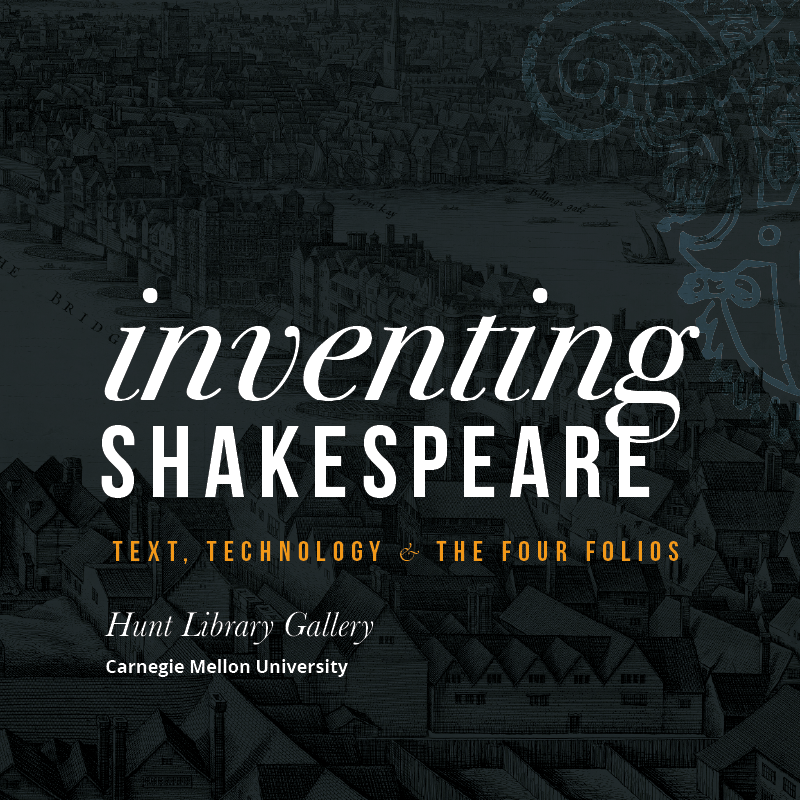 Inventing Shakespeare
Inventing Shakespeare
March 6, 2023 - June 2, 2024
Hunt Library Gallery
Inventing Shakespeare considers the technologies, devices, and tools prompted by research into the First Folio of Shakespeare’s plays. Called “the most thoroughly studied early modern book,” the Folio has inspired a sweeping and multidisciplinary scholarly toolkit, including Charlton Hinman’s optical-mechanical collating machine (described in a short essay on the overleaf), photographic and digital facsimiles, and ongoing experiments at CMU in the analysis of early printed books using computer vision and machine learning. 360 Virtual Tour allows remote visitors to take a self-guided tour.
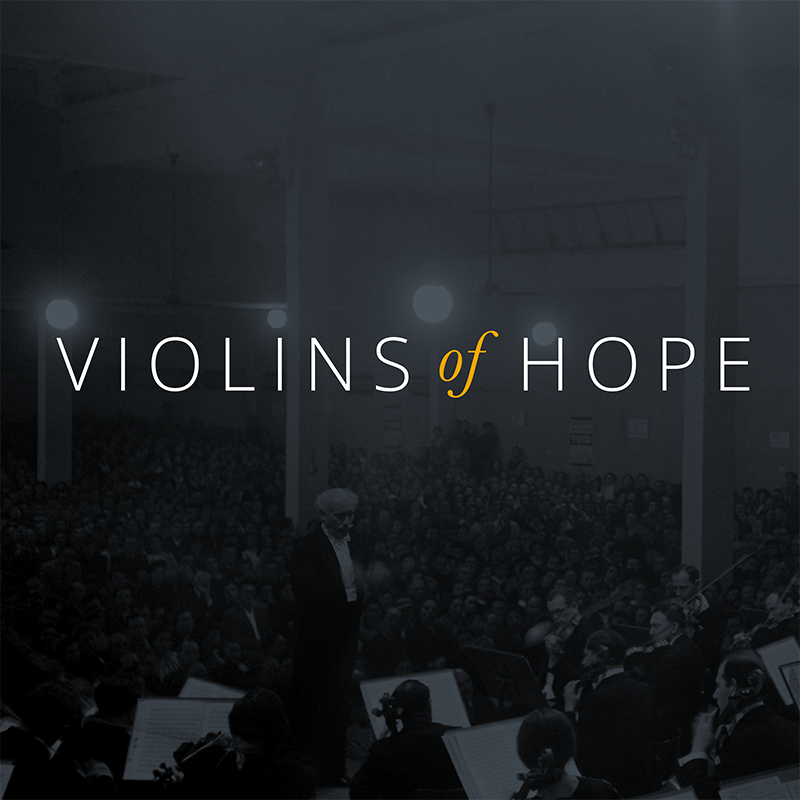 Violins of Hope
Violins of Hope
October 7, 2023 – November 21, 2023
The Posner Center
Israeli violin maker Amnon Weinstein has devoted the last twenty-five years to locating and restoring decades-old instruments played by Jewish musicians during World War II. This exhibition will feature twenty-four of these instruments, illustrating the violin's significance to Jewish culture before, during, and after the Holocaust. Violins of Hope is a tribute to the resilience of the human spirit, a meditation on the hateful endurance of antisemitism, and a homage to those who were lost. 360 Virtual Tour allows remote visitors to take a self-guided tour.
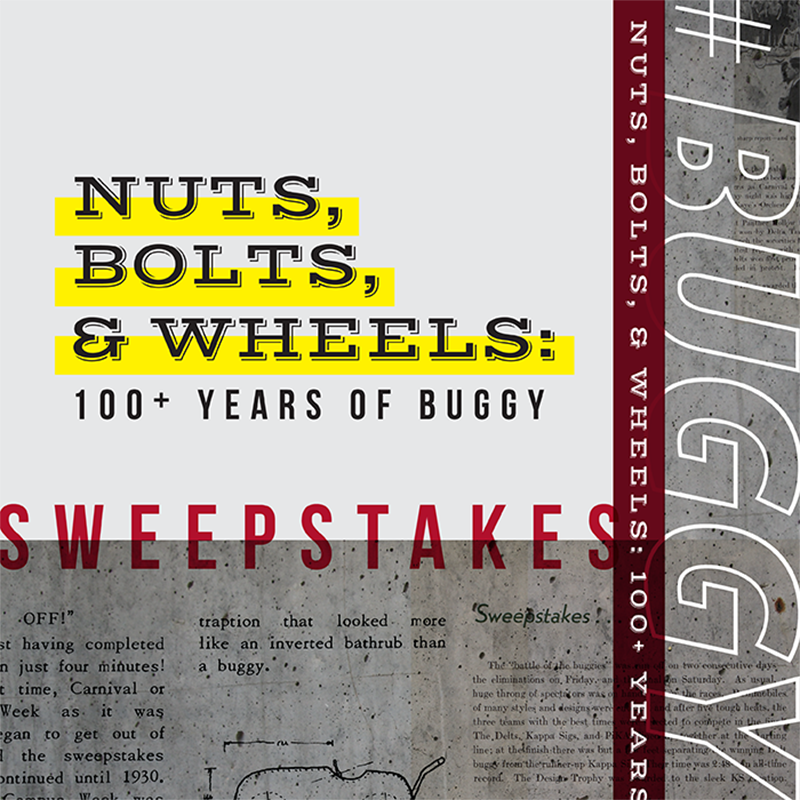 Nuts, Bolts, & Wheels: 100+ Years of Buggy
Nuts, Bolts, & Wheels: 100+ Years of Buggy
April 4, 2022 - February 3, 2023
Hunt Library Gallery
Since 1920, the Interfraternity Motor Sweepstakes—which would come to be known colloquially as Buggy—has occurred nearly every year, stopping only for World War II and COVID-19. The exhibit features multiple buggies and introduces visitors to the Buggy culture through personal recollections, photographs, video, and artifacts donated by alumni. This exhibition celebrates all of the students—Chairmen, Pushers, Drivers, Mechanics, Flaggers, Baggers, and Sweepers—who have participated in Buggy over the last century. A 360 Virtual Tour allows remote visitors to take a self-guided tour.
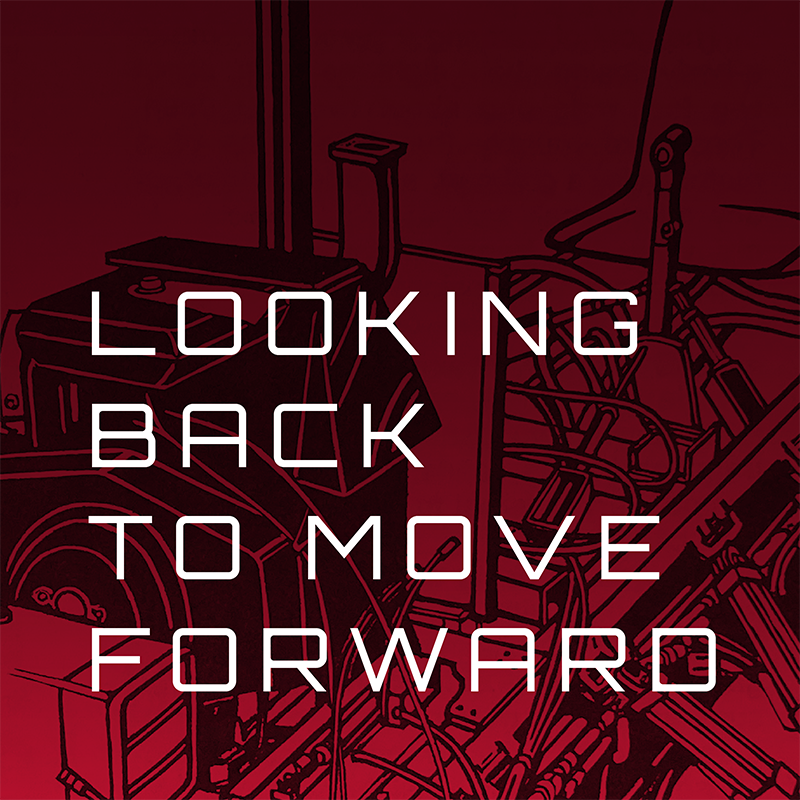 Looking Back to Move Forward / A Re:collection of Robotics at Carnegie Mellon
Looking Back to Move Forward / A Re:collection of Robotics at Carnegie Mellon
January 19, 2022 - March 20, 2022
Hunt Library Gallery
Through more than 40 robots and archival artifacts, the exhibition invited viewers to revisit material moments in the history of robotics and to explore a variety of research areas that CMU is known for—field robotics, artificial intelligence, human-robot interaction, and more. With personal recollections from the people who made it all happen and a look inside the process of archiving robots, this exhibition engaged the ongoing interplay between the past and the future in robotics research. A 360 Virtual Tour allows remote visitors to take a self-guided tour.
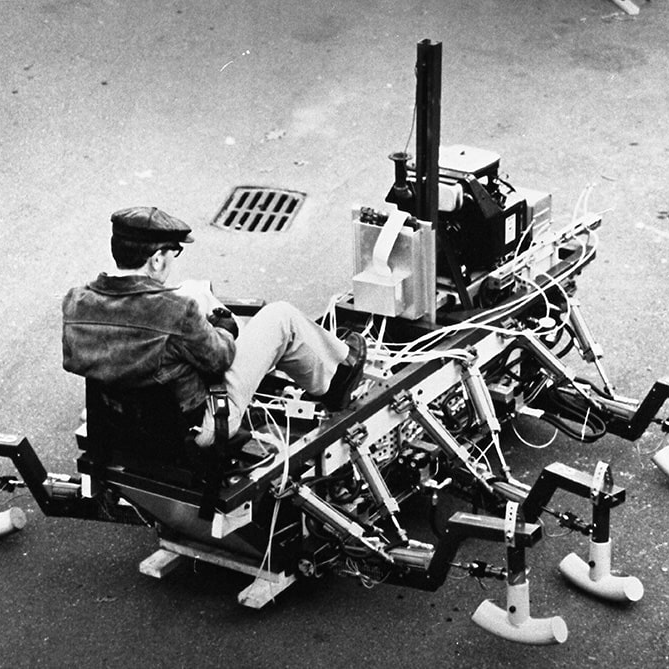 The Robotics Project: Building the Robot Archive
The Robotics Project: Building the Robot Archive
Summer 2021
Online Exhibit
This exhibit explores the core concepts and activities driving the University Archives' effort to create a home for the past, present, and evolving futures of robotics. We expose the questions faced by our team and weave them together with artifacts from the history of robotics at Carnegie Mellon University. With this exhibit, we do not aim to illustrate the entire history of robotics at CMU but rather provide a glimpse into the exciting methods we’re creating and combining to make this project possible. Explore the online exhibit.
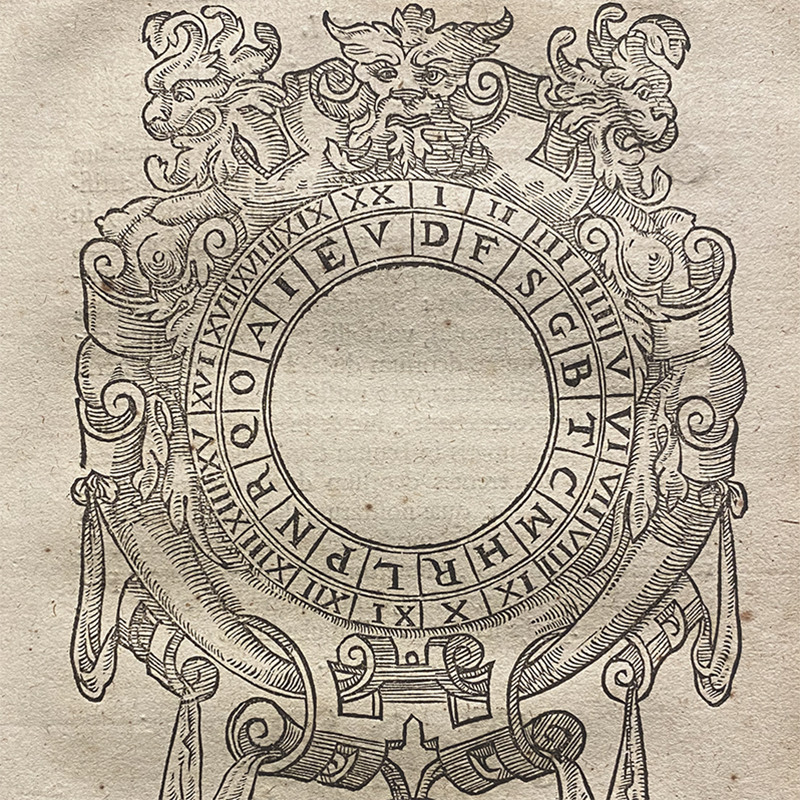 Cipher Discs - Renaissance Encryption Machines
Cipher Discs - Renaissance Encryption Machines
Winter 2021
Online Exhibit
Cipher discs are paper encrypting machines made up of two or more rotating dials (called volvelles) embellished with alphabets, numbers, or other symbols. The central volvelle, called the 'index', revolves to encode or decode a message. This online exhibit — a playful experiment in shortform, interactive exhibition design — explains what cipher discs are and how to use them, featuring a cipher disc that appears in a 1591 copy of Giambattista della Porta's book "De Furtivis Literarum," or "On Secret Writing." This copy is held in Carnegie Mellon University's Special Collections and is available for in-person consultation and research. Explore the online exhibit.
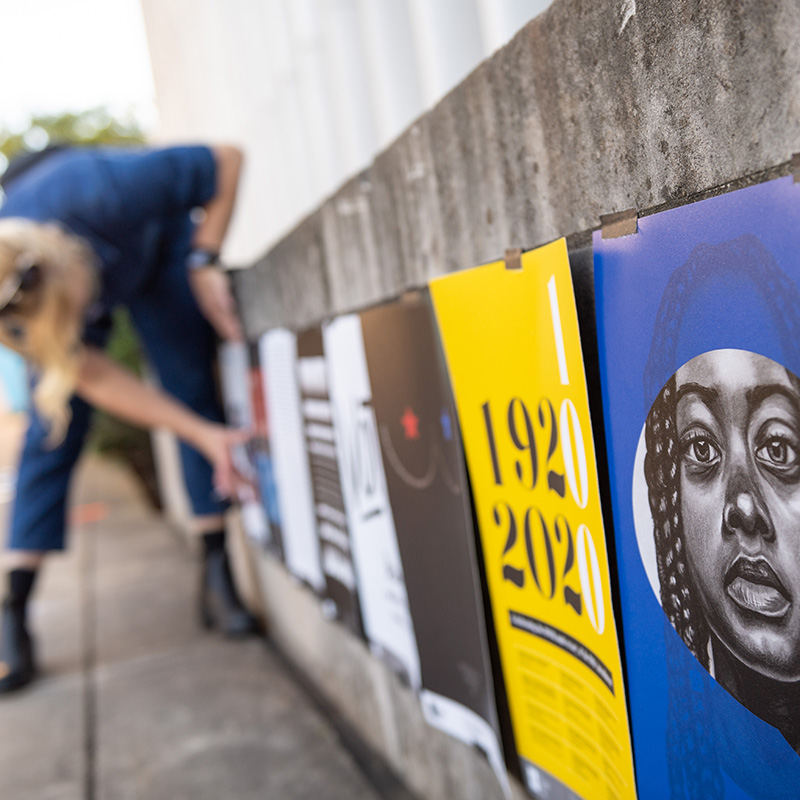 Get Out The Vote!
Get Out The Vote!
October 15 - November 15, 2020
Hunt Library Exterior
Located on the front exterior of Hunt Library, this outdoor exhibit was inspired by the efforts of the Miller Institute of Contemporary Art, whose Pittsburgh edition of “Get Out The Vote” features numerous artists from the Steel City, such as Stephanie Alona, Mary Tremonte, and University Libraries Speaker Series presenter Bekezela Mguni. All posters are free and available for digital download.
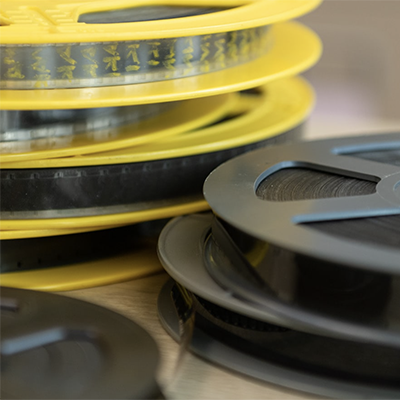 What We Don't Have
What We Don't Have
Fall 2020
Online Exhibit and Hunt Library, First Floor Exhibit Cases
Archives are not neutral. The Carnegie Mellon University Libraries invites you to engage in this unique and revealing online experience. “What We Don’t Have: Confronting the Absence of Diversity in the University Archives” explores the absence of diversity in the Carnegie Mellon University Archives – the voices and experiences we know are missing. Explore the online exhibit.
Related Story: What We Don't Have in Our Archives
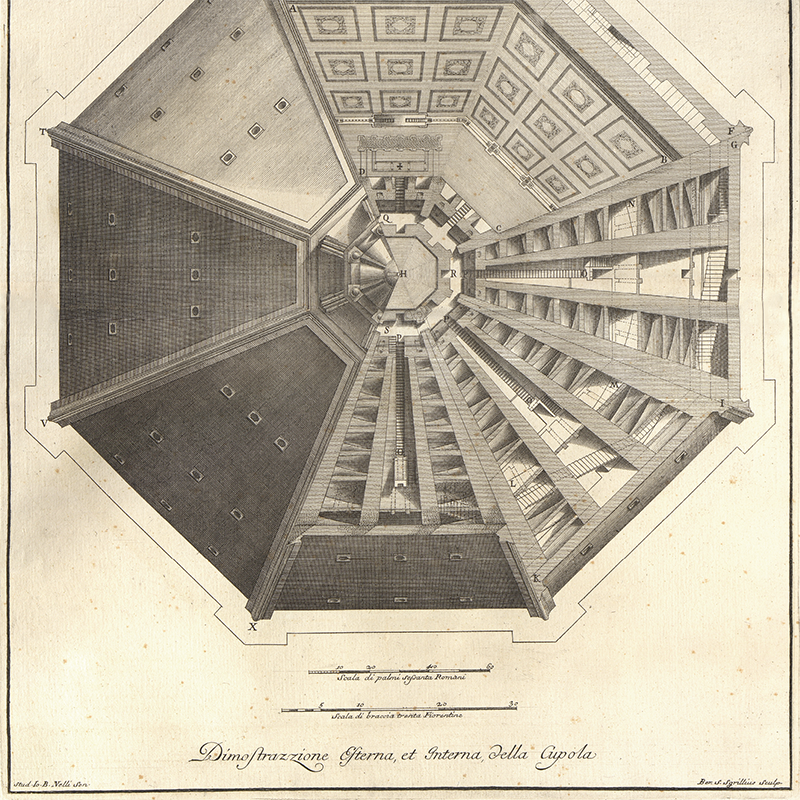 600 Years in the Shadow of the Dome
600 Years in the Shadow of the Dome
January 22 - March 20, 2020
Hunt Library, First Floor Exhibit Cases
This exhibit explores the physical and social environment of Florence, Italy’s Brunelleschi Dome while showcasing Florence and Pittsburgh’s shared urban roles and relationships. “600 Years in the Shadow of the Dome” juxtaposes the Duomo with iconic Pittsburgh architecture such as the Allegheny Court House and US Steel Building, and includes reproductions of Giovan Battista Nelli’s acclaimed set of Duomo drawings from 1688.
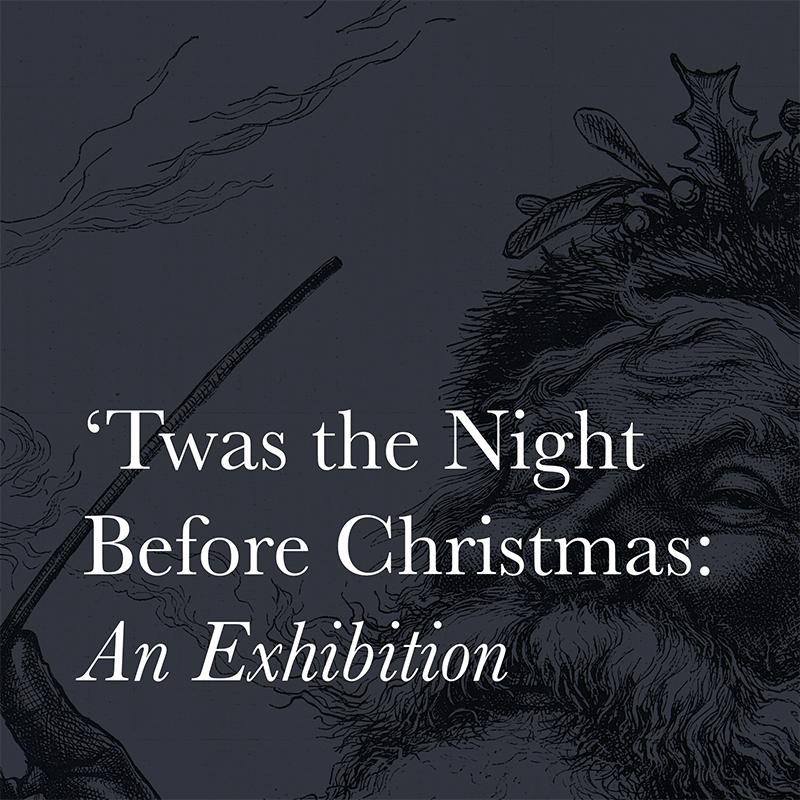 Twas' the Night Before Christmas
Twas' the Night Before Christmas
November 8, 2019 - January 10, 2020
Hunt Library, First Floor Exhibit Cases
More than 300 editions of ‘Twas the Night Before Christmas—spanning a publication history of 150 years—were collected by author and bibliophile Anne Lyon Haight and housed in the Carnegie Mellon University Libraries’ Special Collections on the 4th Floor of Hunt Library in 1982. Inspired by the folklore and imagery surrounding this poem, this exhibit focuses on themes such as the origins of Santa, his everchanging appearance, and his place in technology, material culture and nostalgia.
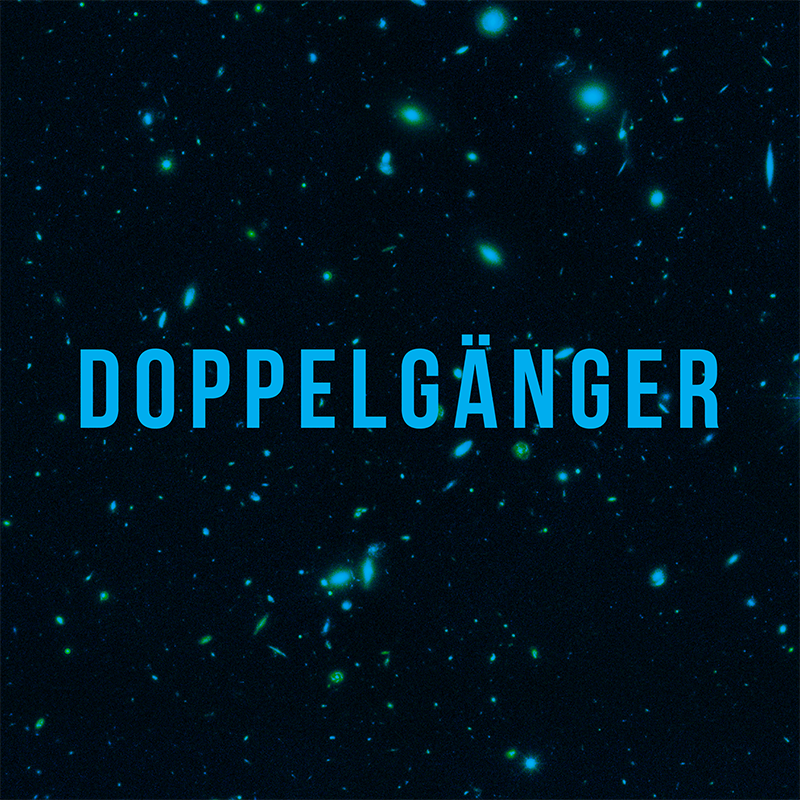 Doppelgänger
Doppelgänger
May 20 - August 30, 2019
Hunt Library, First Floor Exhibit Cases
This is an exhibit of small abstract and identifiable "doppelgänger" soft sculptures made by students in the Inflatables and Soft Sculpture IDeATe class in Spring 2019, taught by Olivia Robinson. Prior to appearing in this exhibit, these soft sculptures were presented at "Pushing Air," an event featuring music, soft-sculpture and textile robotics.
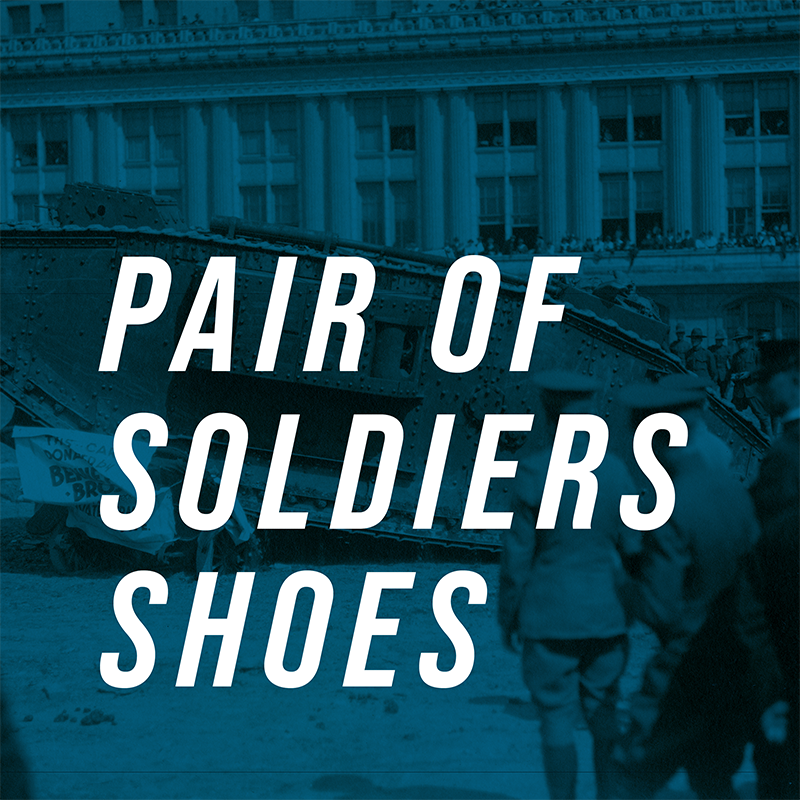 Pair of Soldier Shoes
Pair of Soldier Shoes
October 22, 2018 - February 2019
Hunt Library, First Floor Exhibit Cases
In recognition of the 100th anniversary (November 11, 2018) of the armistice that ended fighting in World War I between the Allies and Germany, the Libraries present the exhibit, “A Pair of Solider Shoes,” which explores the experience on the CMU campus during WWI. All objects and photographs in this exhibit are from the University Archives’ World War I Collection.
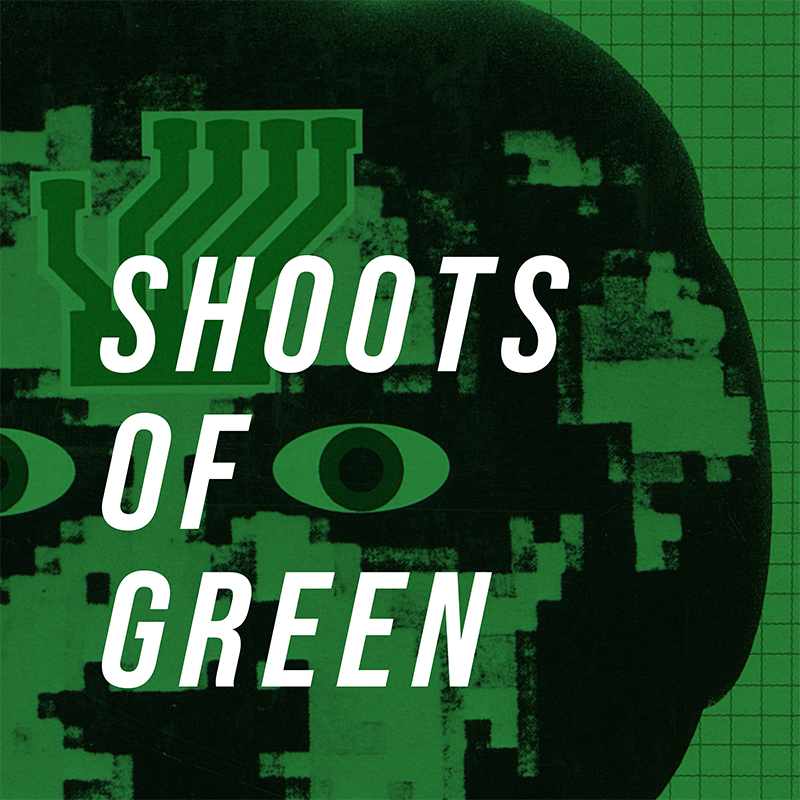 Shoots of Green: Innovations at CMU
Shoots of Green: Innovations at CMU
April 16 - July 20, 2018
Hunt Library, First Floor Exhibit Cases
With this exhibit, we celebrate Pamela McCorduck’s 1979 exploration of Artificial Intelligence, “Machines Who Think: A Personal Inquiry into the History and Prospects of Artificial Intelligence” and her contributions to the history of AI, a field that is central to the identity and culture of CMU. The exhibit takes its name from this quote from the book, “In the 1990s, shoots of green broke through the wintry AI soil.”
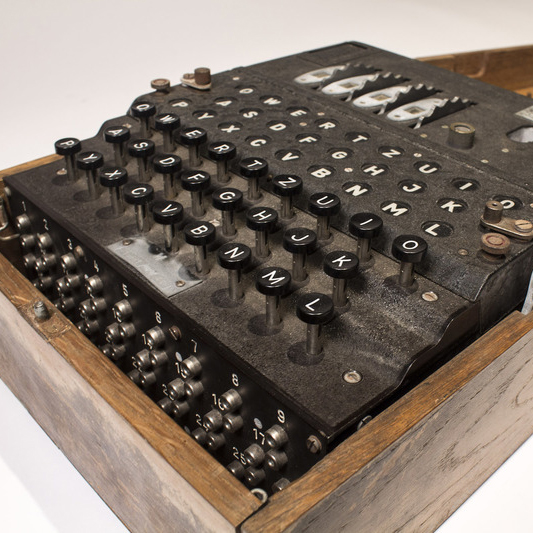 Traub-McCorduck Collection
Traub-McCorduck Collection
February 2018
Online Exhibit
This exhibit features highlights from the Traub-McCorduck collection, which is currently on display in the Fine and Rare Book Room in Carnegie Mellon University’s Hunt Library. Totaling more than 50 calculating machines, letters and books, the collection contains important items in the history of computing, including two Enigma machines.
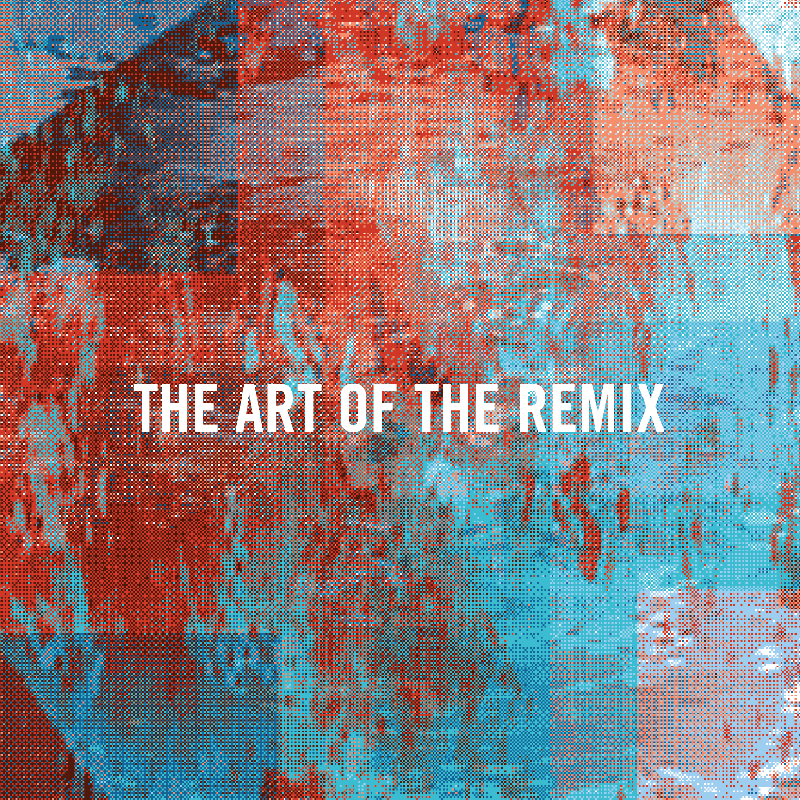 The Art of the Remix
The Art of the Remix
February 26 - March 30, 2018
Hunt Library, First Floor Exhibit Cases
"The Art of the Remix" illustrates what happens when consumers become creators. Utilizing the basic principles of Fair Use to take existing materials and “remix” them into something new, this exhibit showcases the work of multiple CMU students from various disciplines on campus. Through their art, we see how individuals reclaim the visual landscape and create 21st century folklore.
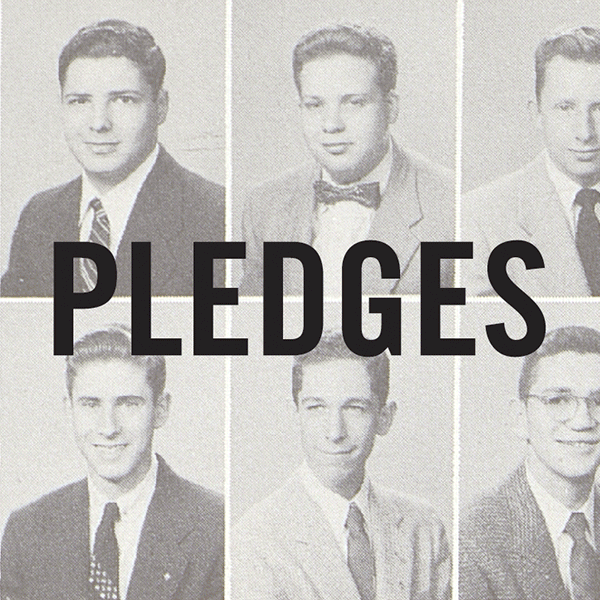 Pledges & Puppies: A Photographic History of Pets in Greek Life at CMU
Pledges & Puppies: A Photographic History of Pets in Greek Life at CMU
December 6, 2017 - February 16, 2017
Hunt Library, First Floor Exhibit Cases
As the Libraries' digitization team worked their way through a project to digitize "The Thistle," CMU’s long-standing yearbook that was first published in 1906, they began to realize that dogs regularly appeared in photographs of student life and social activities, especially fraternities. This exhibit features highlights from that digitization project: formal portraits of dogs - yes, dogs!
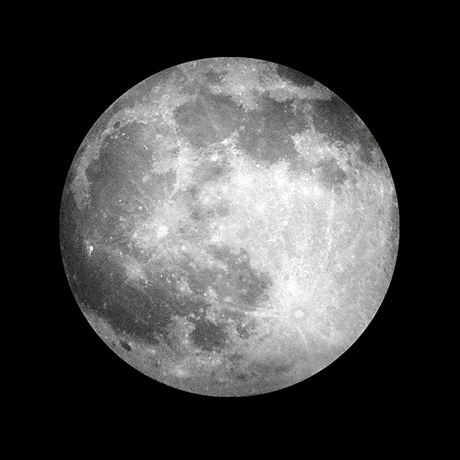 Legacy of the Dead: An Exhibition
Legacy of the Dead: An Exhibition
October 25, 2017 - December 1, 2017
Hunt Library, First Floor Exhibit Cases
In remembrance of CMU alumnus and "Night of the Living Dead" director George A. Romero, who passed away in the summer of 2017, Carnegie Mellon University Libraries presented an exhibition of film memorabilia, "Legacy of the Dead: An Exhibition," donated by CMU School of Drama Professor Emeritus and Romero collaborator Barbara Anderson. Stay scared!
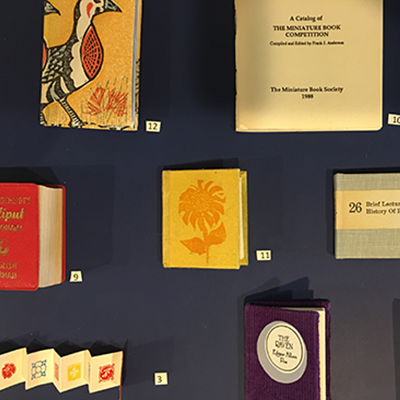 Exhibit: Miniatures and Micro-minis
Exhibit: Miniatures and Micro-minis
March 3 – May 31, 2017
Hunt Library, First Floor
This exhibit offers a rare opportunity to view the Libraries' collection of miniature books (no dimension greater than three inches). Including titles such as “Red Riding Hood,” “The Raven,” and “Life and Work of Beatrix Potter,” viewers will see many familiar works of literature among these shrunken treasures. The Libraries’ miniature books were donated by Rachel McMasters Miller Hunt and Mary Louise Meder.
Watch the video: Tiny Books on Display in Hunt Library
Special Exhibitions
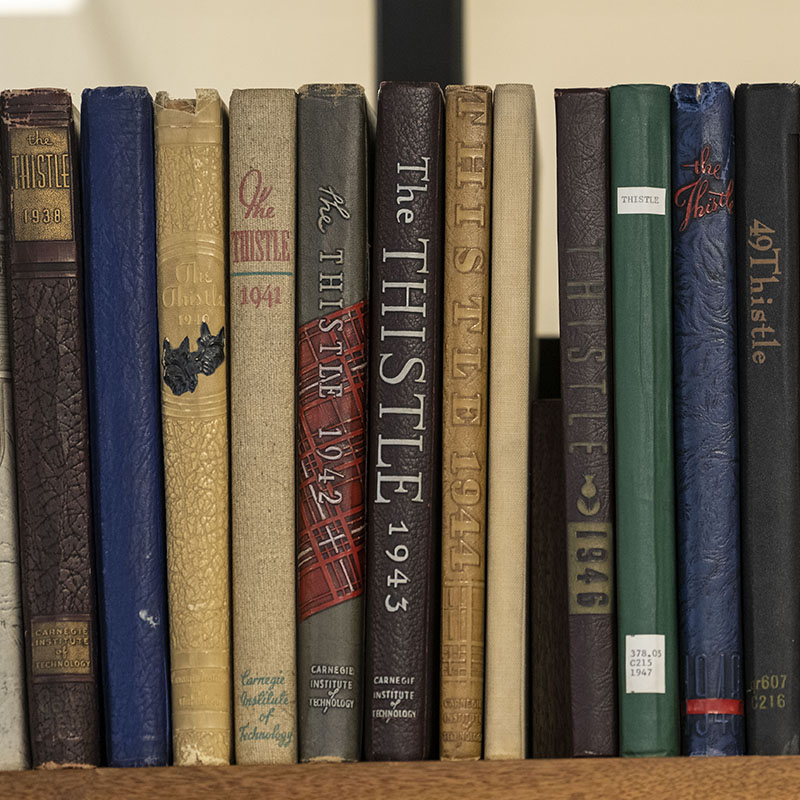 Mellon Conference Room Collection
Mellon Conference Room Collection
Not open to the public
Mellon Conference Room, Warner Hall
Carnegie Mellon University Libraries and the University Archives curated a selection of books and objects for a display inside the Mellon Conference Room in President Jahanian’s Office on the sixth floor of Warner Hall that chronicles the university through expressions of its heritage, voice and impact.
